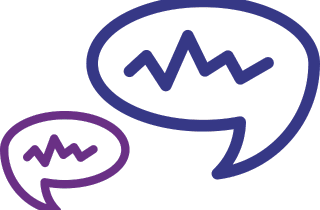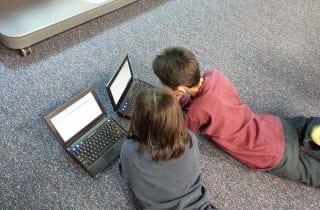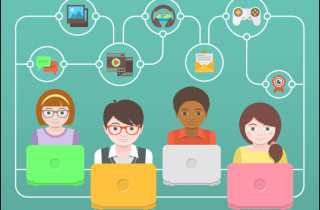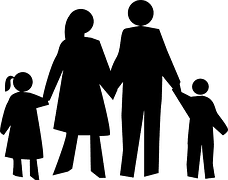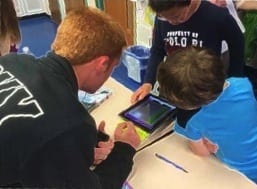Teachers have hopes for young people to share their voices, connect, and learn with others in a global, digitally-mediated world. The challenges of digital spaces create opportunities for uncivil, hateful, or overall trivial and unsubstantial dialogue.
What are the moral and ethical “disconnects” or “blind spots” youth have about online privacy, property, and participation? In what ways are they engaging with ethical sensitivity in digital spaces? Drawing on extensive interviews with young people between 10-25, presenter Carrie James explored youths’ attitudes about online life and the messages they hear from adults.
Common Sense Education, the education arm of Common Sense, the national nonprofit helping parents, teachers, and students thrive with technology, is partnering with edWeb.net to present Digital Classroom: Teaching with Tech.
How do we guide kids to think critically, have moral sensitivity, and make ethical decisions in digital spaces? How do we help them think not only of themselves, but also about the impact of their actions in the digital world on others? Principles of character education intersect strongly with digital citizenship education.
Most educators know what cyberbullying is, and what sexting is – but how prolific are these behaviors with youth? What are effective and ineffective responses? How are cyberbullying and sexting interconnected? There are a lot of misconceptions out there.
In this webinar, presented by The Digital Educator community at edWeb.net, Tanya Avrith addressed a framework to get started with teaching digital citizenship in your class/school. Learn ideas on how you can begin to teach your students how to build their digital identities and become caring citizens of a connected world using social media and the web.
Planning and deploying a 1:1 program for the second-largest school district in the country, serving 650,000 students, is an amazing feat. But it’s also not without challenges. LAUSD’s Rasheed Khan and Rick Hassler shared their Common Core Technology Project: the largest one-to-one mobile device rollout in the country.
We’re proud to be in partnership with Common Sense Education to celebrate the Second Annual Digital Citizenship Week – October 19-25. Join us to shine a spotlight on the importance of helping kids learn how to create safe, responsible digital lives. Check out these resources and learn how Common Sense Education’s whole-community approach engages everyone… read more →
From text messaging, to social media, to online gaming, Connecting Families encourages and supports rich and relevant community conversations about kids’ digital lives throughout the school year. Connecting Families resources allow you to bring these important conversations to your school, but they take the pressure off of you to be an expert. Common Sense Education has done the research, the prep work, and the field-testing, giving you the best tips and content.
Millennials have formidable capacity for 21st century learning – communication, collaboration, creativity, and critical thinking. They excel in these areas when empowered to learn in an educational environment founded on respect and trust.


